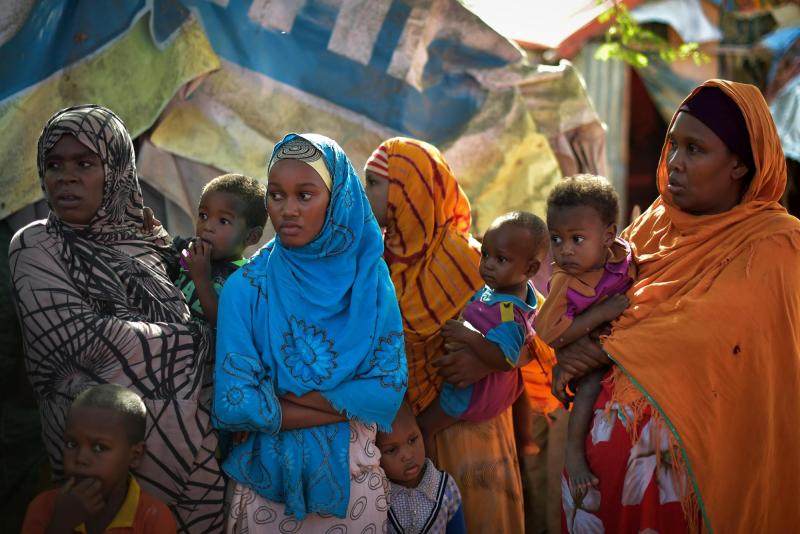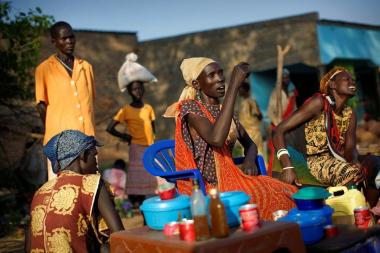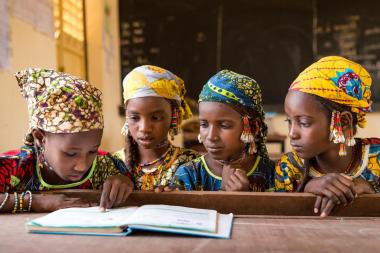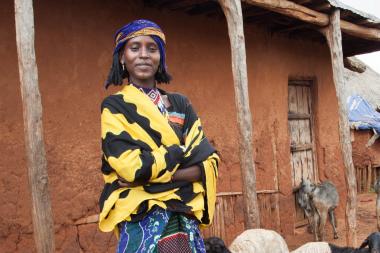News
How SPARC is advancing gender equality in fragile food systems
In the month in which International Women’s Day is celebrated, Katharine Vincent gives an update on SPARC and IDRC-funded projects promoting gender equality in African countries.
Gender inequality is still pervasive around the world, and particularly in African countries affected by conflict and fragility. Yet despite the wealth of investment and aid targeted towards the drylands, a scoping review undertaken at the start of the SPARC programme found limited empirical evidence on gender in agricultural and pastoral livelihoods in these countries. This motivated SPARC and Canada’s International Development Research Center (IDRC) to support participatory action research on advancing gender equality in fragile food systems.
Three selected projects – two in northern Nigeria, and one in South Sudan – are contributing to the body of evidence and directly contributing to gender equality. As these projects are nearing their third year of implementation, it is time to take stock of progress and findings so far.
Addressing the knowledge gaps around pastoralist women and girls
In Nigeria, the Fulbe Development and Cultural Organisation (FUDECO) is implementing a project to advance gender equality, increase social inclusion and empower pastoralist women and girls. As a practice-oriented organisation with a significant history of development interventions, FUDECO is evaluating the effectiveness of ongoing pastoralist women and girls’ empowerment initiatives. They use a participatory approach to understand what pastoral women and girls consider empowerment to mean: adding nuance to those existing metrics and indicators of women’s empowerment which are not necessarily tailored to pastoral contexts.
Also in Nigeria, the Centre for Population and Environmental Development (CPED) is implementing a project to amplify the voices of women and girls in pastoral communities across Nigeria’s Sahel region. As with FUDECO, CPED also pays particular attention to ensuring that the findings have resonance with local decision makers.
Across the continent, Kenyatta University is implementing a project on ‘Building gender-responsive climate-resilient communities in South Sudan’. The project aims to address the evidence gap on the lives, priorities and aspirations of women and girls in agro-pastoralist and pastoralist communities in Jonglei state, South Sudan. It also aims to reduce the gendered impacts of climate change and conflict on pastoralists’ livelihoods.
Our work so far
All three teams practice what they preach, recruiting women researchers. Given pervasive gender inequality, and the fact that women typically have less education in these largely rural areas, this is not always easy.
In South Sudan, for example, Kenyatta University’s intention to recruit an all-women team of postgraduate researchers has been challenged by the realities of large out-migration by youth to study abroad, including in Kenya. However, although their team is now a mix of men and women, all have gender as a central theme of their research. Kenyatta is also capitalising on the interest of South Sudanese students in Kenya, and has held webinars and events with them. Meanwhile in northern Nigeria, when seeking local representatives to undertake a survey, CPED was able to recruit 25 women and 5 men: a ratio which far exceeded their already-ambitious intentions.
Data collection is progressing apace. In Nigeria, for example, CPED has conducted surveys with over 2000 households, whilst FUDECO has undertaken interviews with 1200 people across six states. In South Sudan, Kenyatta University has completed over 600 surveys, of which approximately two thirds were with men, and one third with women.
From research to action
As the data collection period comes to an end, the teams are turning their attention to impactful activities that are designed to contribute to gender equality.
In South Sudan, results are showing significant differences in the experiences of men and women when faced with a changing climate. Access to response options also differs, reflecting different gender norms. Men’s options are typically linked to livestock herding, as this is a key responsibility for them, and migration. Women, on the other hand, report drying and smoking meat and fish, drying vegetables and nuts, and selection and preservation of valuable seed in order to ensure food security in the short term.
In Nigeria, CPED research has shown that climate change and increasing numbers of people and herders are placing pressure on movement corridors. The project team is working with policy makers at the state level to address these pressures. The project is also supporting empowerment-based activities aimed at reducing the household workloads for women and girls, such as training on village savings and loans association which provide access to finance, or support to register cooperatives.
FUDECO is also tackling barriers to women’s participation in economic activities. Their research shows that many women do not have national IDs – a critical component of Nigerians’ access to financial services – and so FUDECO is supporting their registration. Similarly, data gathered shows that women aspire to engage in milk trading, so FUDECO is brokering conversations with middlemen to bring them into the market.
These activities will continue over the remaining 12-18 months for the projects. With continuing progress, they are on course to make significant improvements to gender equality through women’s empowerment, both at the grassroots level and through raising awareness of the need for changes in policy.

A group of women stand near a water point at the Dayniile IDP camp, Somalia
Credit Image by Tobin Jones/UN


